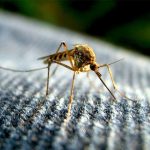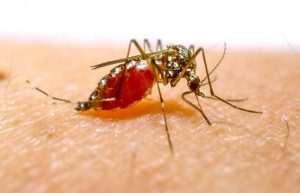
Mosquitoes in Melbourne
Mosquitoes are a constant pest, in Melbourne and throughout Australia. There are more than 3500 species of mosquitoes worldwide. More than 300 of these species are found in Australia.
Mosquitoes are two winged, bloodsucking flies that are primary disease vectors. Late summer and early autumn are the peak times for mosquitoes in Victoria. They feast on blood to obtain protein for egg production, often spreading disease to the host. Interestingly, they also feed on the plant nectar for energy.
The most common mosquitoes EPC – Enviro Pest Control finds in homes and businesses are House mosquitoes, Drain mosquitoes, Brown mosquitoes and Fruit mosquitoes. (‘Drain mosquitoes’ or ‘fermentation mosquitoes’ are accepted coverall names for vinegar mosquitoes, phorid mosquitoes and moth mosquitoes, -no one mosquito is called a drain or fermentation mosquito).
Mosquitoes Disease and Contamination
More than just a buzzing nuisance, in terms of human deaths, mosquitoes are by far the deadliest animal family in the world!
In passing from host to host, some mosquitoes transmit extremely harmful infections such as;
- Ross River fever
- Barmah Forest virus
- Dengue Fever,
- Australian Encephalitis (Murray Valley Encephalitis or Kunjin)
- Malaria
- Yellow fever
- Chikungunya
- West Nile virus,
- Human Lymphatic Filariasis,
- Zika virus and other arboviruses.
The two main mosquito-borne diseases spread by mosquitoes in Victoria are Ross River Virus and Barmah Forest virus. People may become infected without becoming unwell, or may develop joint swelling and pain, fatigue, muscle aches, headache or rash. Symptoms usually resolve within several weeks but lethargy, joint and muscle pain can persist for many months. A blood test is required to establish whether you have an infection or not, and may be followed with a second blood test up to two weeks later.
Sensitivity to mosquito bites varies with individuals, most people have only a mild reaction but others can have severe symptoms from the saliva of mosquitoes. Typical symptoms include swelling, redness and irritation at the puncture site.
The risks are also not limited to you. Mosquitos are the carrier for Heart Worm in dogs.
EPC – Enviro Pest Control utilise Integrated Pest Management practices and can advise you on the range of control methods best suited to your situation.
Breeding and Life Cycle of Mosquitoes
Mosquitoes belong to the family of flies called Culicidae and are a small fragile insect.
Mosquitoes have a complex life cycle; the immature stage is totally aquatic and the adult is terrestrial. Mosquito eggs are usually laid on the surface of water and hatch into larva, which are aquatic and usually referred to as wrigglers. Larvae feed on organic matter, which they filter from their environment. The larvae undergo four moults before pupating. The adult emerges from the pupal case onto the surface of undisturbed water.
The life cycle from egg to adult may be as short as a week, or much longer depending upon temperature, food supply, species etc. Mosquito species vary in their breeding habits, biting behaviour, host preferences and flight range. Most mosquitoes disperse less than two kilometres; some move only a few metres away from their original breeding place, others can fly some 5 or 10 kilometres, and a few species will disperse up to 50 kilometres downwind from the larval habitats.
On average, a female mosquito will live 2-3 weeks, but the male’s lifespan is shorter. Within their lifetime both adult male and female will feed on nectar and plant fluids, but it is the female that will seek a blood meal. The majority of species require this blood meal as a protein source for egg development.
Most commonly found mosquitoes species in Melbourne are:
- Common Australian Mosquito (Anopheles annulipes)
- Responsible for transmitting malaria, Myxomatosis and Filariasis
- Pale body with dark marks on wings
- Egg to adult takes 6-10 days
- Females lay 50-150 eggs
- Mainly active at night
- Dengue Mosquito (Aedes aegypti)
- Responsible for transmitting Dengue fever and dog heartworm
- Accounts for around 90% of all mosquitoes in human habitations
- Black with white stripes and a white lyre-shaped marking on its back. Similar in appearance to Aedes notoscriptus
- Egg to adult takes 6-8 days
- ‘Biting’ rates peak at change of light (after sunrise and before sunset)
- Domestic Container Mosquito (Aedes notoscriptus)
- Black with white stripes and a lyre-shaped white marking on its back
- Responsible for transmitting Myxomatosis and dog heartworm
- Common in blocked roof guttering
- Active day and night
- Brown House Mosquito (Culex quinquefasciatus)
- Light brown with darker wings and lower legs
- Responsible for transmitting Filariasis & dog heartworm
- Main hosts are chickens and humans
- Active mostly at night
- Common Banded Mosquito (Culex annulirostris)
- Responsible for transmitting Myxomatosis, Ross River & Barmah Forest Viruses, Australian Encephalitis, and Japanese Encephalitis Viruses and dog heartworm
- Found around freshwater, swamps, pools, bodies of water
- Can travel 5-10k from place of birth
- Active mostly at dusk and at night
- London Underground Mosquito (Culex molestus)
- Approx.2 mm long
- Light brownish in colour, banded stripes on body
- Unusually, it remains active in cooler months
- Prefers underground environments for breeding (e.g. old septic tanks, water tanks and toilet blocks etc)
- Can produce offspring without feeding first
Deterring Mosquitoes
We have all heard the saying, ‘Prevention is better than the cure.’ This applies to pests too. Here are some ways to limit the chance of a mosquito infestation occurring by removing potential mosquito breeding sites around your home:
- Install flywire screens on all windows and self-closing wire screens on doors. Check them regularly and mend any holes.
- Prevent pools of water from forming – get rid of unused tins, tyres and similar rubbish, clean gutters and drains regularly and mend leaking taps.
- Put sand around the base of pot plants to absorb excess water in the dish.
- Empty children’s wading pools if not being used regularly.
- Change your animal’s drinking water and bird baths regularly
- Keep lawns trimmed to reduce the areas for mosquitoes to breed
- Keep swimming pools well maintained or covered (or empty) if not in use
- Keep fishponds stocked with fish.
EPC’s Fun facts about Mosquitoes
- It is the females who bite, needing the blood meal before egg laying
- Mosquitoes only need half an inch of water to breed
- The word “mosquito” is Spanish for “little fly”
- Mosquito wings beat at 200-300 times per second creating the high pitched whine you hear
- Mosquitos have been around since the Jurassic period
Why Hire EPC – Enviro Pest Control for mosquito problems?
If you have a business or live in Melbourne mosquitoes can be more than just a nuisance, spreading disease and disturbing customers. EPC can identify the mosquitoes and the reasons behind the infestation to safeguard you from future infestations.
- We use chemicals that are HACCP compliant
- EPC – Enviro Pest Control staff are Trained Specialists and are very experienced at getting rid of mosquitoes and understand the importance of a fast, efficient solution
- We arrive on time
- EPC – Enviro Pest Control staff are discreet, friendly and professionally presented
- Fairly priced service with advice to help prevent mosquitoes coming back
- EPC – Enviro Pest Control’s pest control services including for mosquitoes are effective
If you need to speak to a professional about Mosquito Treatments in Melbourne, call 03 9988 5066 now.
